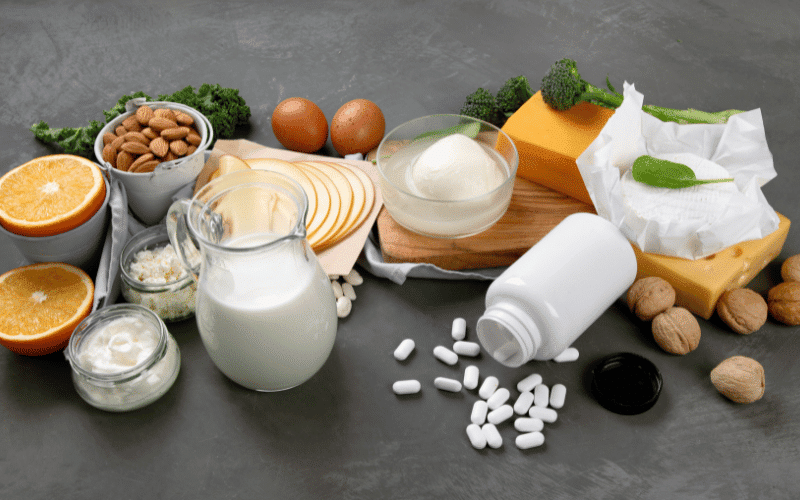Tip 5. Calcium Care: Supporting Bone Health

After a thyroidectomy, attention to bone health becomes even more critical, as changes in your hormone levels could impact your bones. One nutrient that stands out when it comes to bone health is calcium.
This essential mineral plays a pivotal role in maintaining bone density and overall skeletal health. However, how does one ensure they’re providing adequate care to their calcium needs post-thyroidectomy?
Calcium is the most abundant mineral in our bodies, with 99% of it found in our bones and teeth. It’s essential for bone formation and strength, making it a key player in your bone health post-thyroidectomy. Calcium also plays a crucial role in other bodily functions, including nerve transmission, muscle contraction, and blood clotting.
Ensuring adequate calcium intake post-thyroidectomy starts with understanding your daily needs. Most adults require around 1000-1300mg of calcium per day, but this can vary depending on your age, sex, and overall health status. It’s important to consult with your healthcare provider or a dietitian to understand your specific needs.
Once you’ve determined your needs, the next step is to incorporate calcium-rich foods into your diet. Dairy products, such as milk, yogurt, and cheese, are often the first that come to mind when we think about calcium.
However, they’re not the only sources. Leafy green vegetables, such as kale and spinach, tofu made with calcium sulfate, and fortified foods, such as orange juice and cereals, can also contribute to your calcium intake.
If you’re having trouble meeting your calcium needs through food alone, your healthcare provider might recommend a calcium supplement. Keep in mind that the body can only absorb a certain amount of calcium at one time, typically around 500-600mg. If you’re taking a supplement, it’s often best to split the dose, taking it multiple times throughout the day.(5)